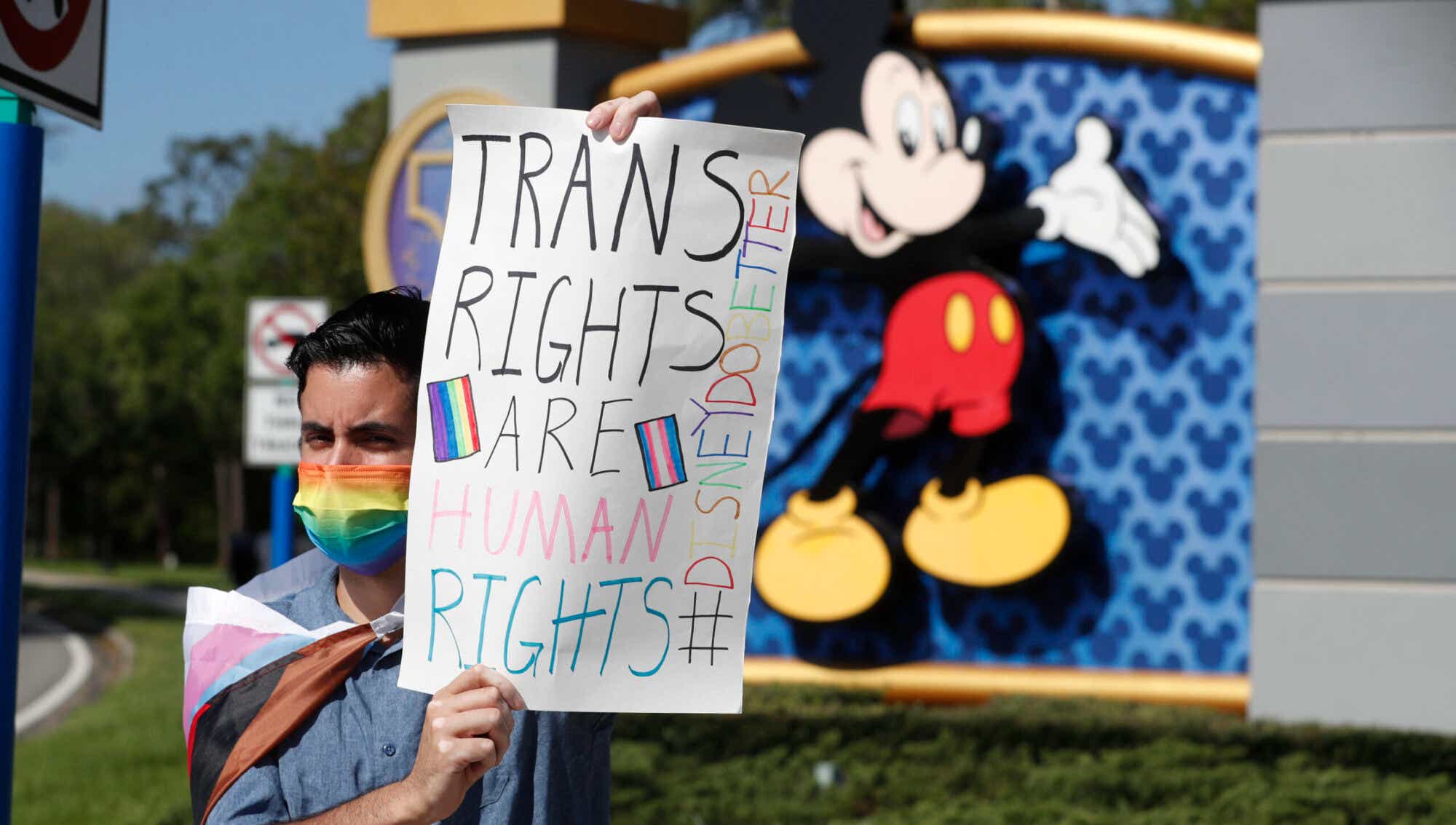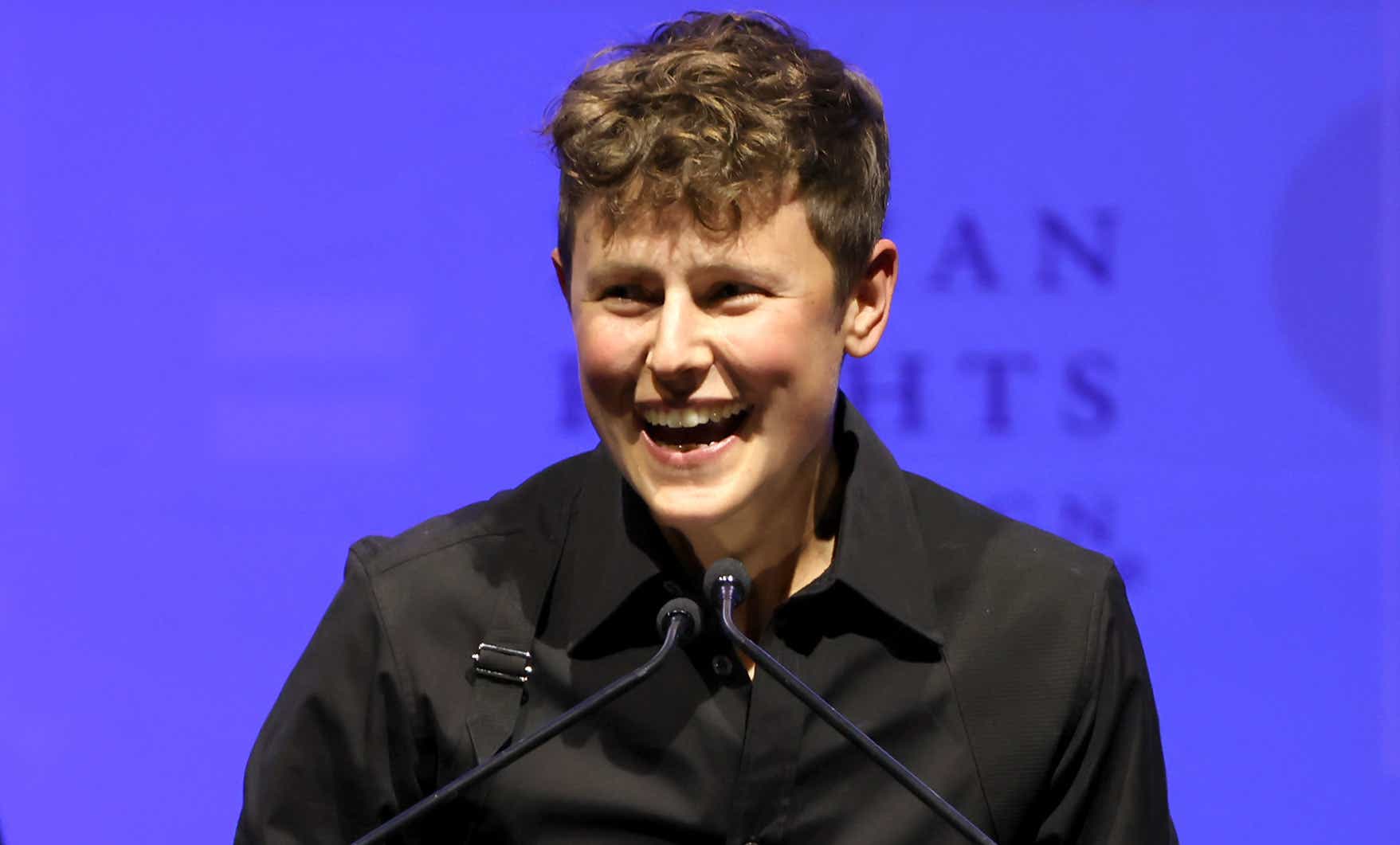Disney heir comes out as trans
Charlee Disney, one of the heirs to The Walt Disney Co., has come out publicly as transgender and condemned the rise of anti-LGBTQ bills. The 30-year-old high school science teacher said they regretted not having done more to advocate against Florida’s bill.
“I don’t call senators or take action,” Charlee told The Los Angeles Times. “I felt like I could be doing more.”
Last month, Charlee said that their family would match up to $250,000 in donations to the Human Rights Campaign, the nation’s largest LGBTQ advocacy group, during the organization’s annual gala in Los Angeles. Last week, Roy P. Disney, Disney’s father and the grandson of the company’s co-founder, increased that amount to $500,000.
“Equality matters deeply to us,” Roy P. Disney said per the Times, “especially because our child, Charlee, is transgender and a proud member of the LGBTQ+ community.”
Florida’s Gov. Ron DeSantis recently signaled his support for stripping Disney World of its 55-year-old special self-governing status, as the governor’s feud with the company over his Don’t Say Gay bill escalates.
Disney takes new stand over “Don’t Say Gay”
After DeSantis signed the bill into law, the Walt Disney Company released a statement declaring its “goal” to get the law repealed or defeated in court.
“Florida’s HB 1557, also known as the ‘Don’t Say Gay’ bill, should never have passed and should never have been signed into law,” the statement reads. “Our goal as a company is for this law to be repealed by the legislature or struck down in the courts, and we remain committed to supporting the national and state organizations working to achieve that.”
This public opposition from the company comes on the heels of an employee walkout protesting CEO Bob Chapek’s previous mishandling of the situation.

DeSantis threatens Disney’s “special privileges”
DeSantis had already stressed that Disney’s statement “crossed the line,” but on March 31 he upped the ante, suggesting Disney’s “special privileges” could be revoked.
“Disney has alienated a lot of people now,” DeSantis said at a West Palm Beach press conference according to CBS Miami. “And so the political influence they’re used to wielding, I think has dissipated. And so the question is, why would you want to have special privileges in the law at all? And I don’t think that that we should.”
At the end of March, it was revealed that some Republican state lawmakers are considering repealing a 1967 state law that established the Reedy Creek Improvement District, which gives Disney the authority to establish its own government in central Florida.
“Yesterday was the 2nd meeting in a week [with] fellow legislators to discuss a repeal of the 1967 Reedy Creek Improvement Act, which allows Disney to act as its own government,” state Rep. Spencer Roach, a Republican, posted on Twitter. “If Disney wants to embrace woke ideology, it seems fitting that they should be regulated by Orange County.”
A Major Backtrack From Disney
This latest development marks a sharp adjustment in Disney’s attitude to HB 1557 — aka, the “Don’t Say Gay” bill. Walt Disney Company contributed just under $200,000 to the Florida Republicans behind the bill, a decision felt by many to be at odds with its LGBT+ advocacy and praise as an LGBT+ friendly workplace from the Human Rights Campaign.
As employees’ ire about “Don’t Say Gay” increased earlier this year, Disney CEO Bob Chapek wrote an internal communication saying “corporate statements do very little to change outcomes or minds,” and are instead “weaponized by one side or the other to further divide and inflame.” He suggested that the company’s best instrument for change was its films and programs.
On March 11, Chapek formally apologized for the company’s failure to support its queer community.
“Thank you to all who have reached out to me sharing your pain, frustration and sadness over the company’s response to the Florida ‘Don’t Say Gay’ bill,” Chapek wrote in an internal memo. “Speaking to you, reading your messages, and meeting with you have helped me better understand how painful our silence was. It is clear that this is not just an issue about a bill in Florida, but instead yet another challenge to basic human rights. You needed me to be a stronger ally in the fight for equal rights and I let you down. I am sorry.”
What does the “Don’t Say Gay” bill do?
Under the bill, Florida school districts “may not encourage classroom discussion about sexual orientation or gender identity in primary grade levels or in a manner that is not age-appropriate or developmentally appropriate for students.”
While “Don’t Say Gay” doesn’t specify what’s thought to be “age-appropriate” or “developmentally appropriate,” Sen. Dennis Baxley, who proposed the bill, said it’s intended for kids ages 3 through the third grade.
The bill would also allow parents to sue schools for not telling them about certain choices “affecting a student’s mental, emotional, or physical health or wellbeing.”
As state Rep. Carlos G. Smith recently told KCM, the “sponsors and supporters of the bill weren’t able to produce a single example of when classrooms or teachers in Florida’s public schools have been introducing classroom instruction or curriculum on sexual orientation or gender identity,”









